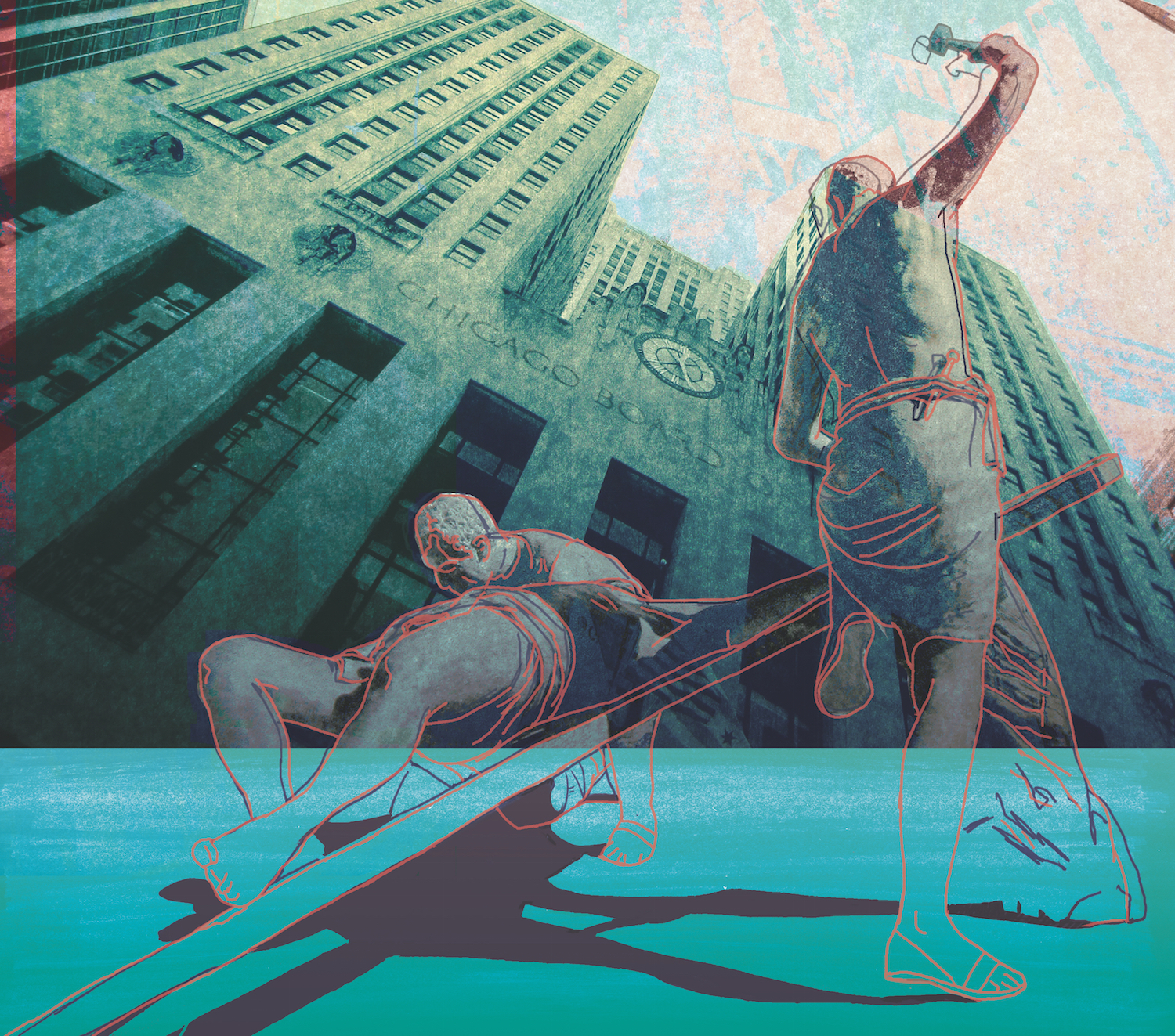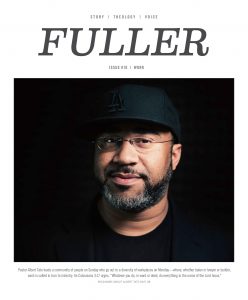
Familiarity can sometimes lead to an illusory perspective. I have spent a long time thinking, reading, and writing about dimensions of public Christianity such as politics, culture, and work, and have been heartened by the increase in the numbers of books, articles, and blog posts on these topics. The illusion is that “increase” means that most evangelical Christians in the United States have developed an intimate familiarity with developments like the faith and work movement; the reality is that this increase is actually just the beginning. As investment strategist Bob Doll once told me, we are at the tip of the iceberg and not the entire iceberg itself.
While this recognition reveals the scale of the task of evangelizing the church about the impact of the good news beyond houses of worship, it also occurs to me that there is an opportunity to refine the message about the holistic discipleship central to faith and work. While many who write about faith and work could not be charged with swinging the pendulum to an opposite extreme in reaction to the absence of or resistance to holistic discipleship, it is important to reckon with the temptation to move from “heavenly minded / no earthly good” to “earthly minded / apathetic to heaven.” Put differently, the challenge is to land squarely in the midst of the “already/not yet” tension, what I think of as walking the line between detachment from our earthly lives and idolatrous (or nearly so) engagement with our lives.
It may seem strange to suggest that eschatology plays a vital role in a discussion of faith and work, because of the heavily futurist orientation prominent in evangelical circles. Questions about Christ’s return—rapture, tribulation, millennium—have great importance but are not the only aspects of the last things. When Jesus began his ministry after John’s baptism, he announced that the kingdom was at hand, the beginning of the end—or, really, the beginning of the new beginning. Christ’s life, death, and resurrection begin the arrival of God’s kingdom, and we stand between the first phase of the kingdom and its ultimate consummation that will occur when he returns to reign in fullness.
Our recognition of what has occurred gives us reason to conduct our lives now with the knowledge that God has not abandoned but has begun to reclaim his creation. This recognition of God’s commitment to his world ought to compel us to take our responsibility in this world with great seriousness; our work as one expression of the creation/cultural mandate remains.
It is also important to give attention to the future aspect of God’s kingdom. This forward gaze gives us sure hope in the face of the reverberations of the Fall that taint, impede, and sometimes thwart our aspirations for fruitful work. It also tells us that ahead lies life in the future kingdom that is greater than we can now imagine. Looking forward with great anticipation is a central and proper dimension of our faith.
What are some of the implications of this for our work life? First, an eschatological perspective can help us have a more expansive view of a word like “vocation.” Much of the faith and work conversation emphasizes vocation in relationship to career pursuits, which is indeed proper, but a fully Christian sense of vocation must include the call of God on our entire lives. Perhaps one way to think of this is to consider Augustine’s words: “. . . our hearts are restless until they rest in you.” While Augustine may not have had dimensions of contemporary holistic discipleship in mind, the great truth that our lives operate best when we are reconciled to and resting in God applies to all of our endeavors. Vocation, the call of God, is God’s beckoning us to a life reconciled to him and reoriented toward proper worship and work.
A further implication of this perspective is a familiar truth that is sometimes difficult to practice: Work is important, but there are important things in addition to work. To walk the line well requires an embrace of the goodness of work and the recognition that God is intensely interested in the 40-plus hours per week we spend on the job. The challenge is to resist turning God’s affirmation of our work lives into permission to transform office spaces into altars or shrines. This is particularly difficult in the types of jobs that bring a high degree of satisfaction and reward. Proper attention to task management, leadership development, innovation, and other responsibilities in various fields can morph from holistic discipleship into idol worship. We desperately need Christians to work well and lead in their fields, but a distorted vision can quickly occur. This is where we need the reminder that even our best contributions are penultimate, that we await a future reality, and that our fidelity to God far exceeds other good though lesser commitments—like work and career. The resistance of workplace idolatry also helps us distribute our time to family life, service to the local church, and hobbies.
Some additional observations of walking the line include a recognition of the luxury of choice that comes to some of us. “Find your passion” is really just one dimension of discernment in our larger concept of vocation, and the conversation presumes a variety of options. The truth is that having an array of choices is a privilege easily taken for granted. These choices should certainly be considered with great seriousness, but tempered by walking the line between the now and the not yet. Even if we find ourselves in a vocational sweet spot where we live the dream of getting paid to inhabit our passion, no career amounts to a personal experience of realized eschatology. Our best accomplishments are penultimate.
Many open vistas remain for helping church leaders and parishioners discover the deep connections between life with Christ and life at work. As we do so it will be important to teach them to walk the line as part of faithful discipleship.


